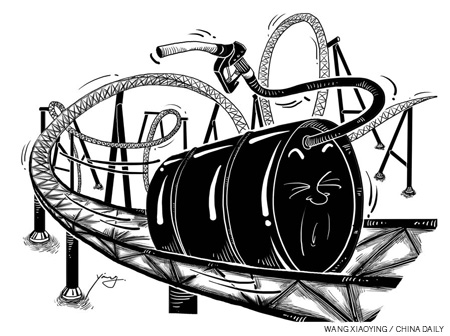Oil prices a worry for Asian neighbors

China and India both are worried about the impact of high oil prices on their growth prospects. Global oil prices had begun increasing in 2010, well before problems surfaced in North Africa and the Middle East. As the world economy gradually recovered from recessionary conditions, demand for oil increased, hiking its prices.
The first quarter of 2011 saw prices rising further because of disruptions in oil supplies from Egypt and Libya. Though the Organization of Petroleum Exporting Countries has increased production, inflationary fears over crude oil prices are getting stronger. The news of Osama bin Laden's death had depressed oil prices temporarily. But they have begun rising again.
In its latest assessment of the world economic outlook, the International Monetary Fund (IMF) projects global oil prices to increase by more than 35 percent in 2011. The prediction may come good, given the current trends. From about $70 a barrel this time last year, oil prices increased to $125 a barrel at the end of April 2011. They dropped below $115 a barrel following bin Laden's death. But this will probably be a short-lived trend because fears of greater turbulence in West Asia will lead to increase in prices.
The current rate of price increase has serious implications for China and India. It can recreate the scenario of 2008, when crude oil prices reached almost $150 a barrel, a few months before the collapse of Lehmann Brothers and the outbreak of the global financial crisis. With economic activity and GDP growth in both countries having recovered to pre-crisis levels, high oil prices pose major risks to their growth.
As two of the world's leading oil consumers and crude oil importers, demand for oil in both countries is relatively price-inelastic. Given their growth trajectories, neither country will experience decline in demand for oil in spite of high prices. And as they keep buying oil at high prices, both will feel the impact on their balance of payments, inflation and GDP growth. Higher oil imports will reduce their trade surplus and bring down their current account balances.
Go to Forum >>0 Comments
 Add your comments...
Add your comments...
- User Name Required
- Your Comment
- Racist, abusive and off-topic comments may be removed by the moderator.
 0
0 






